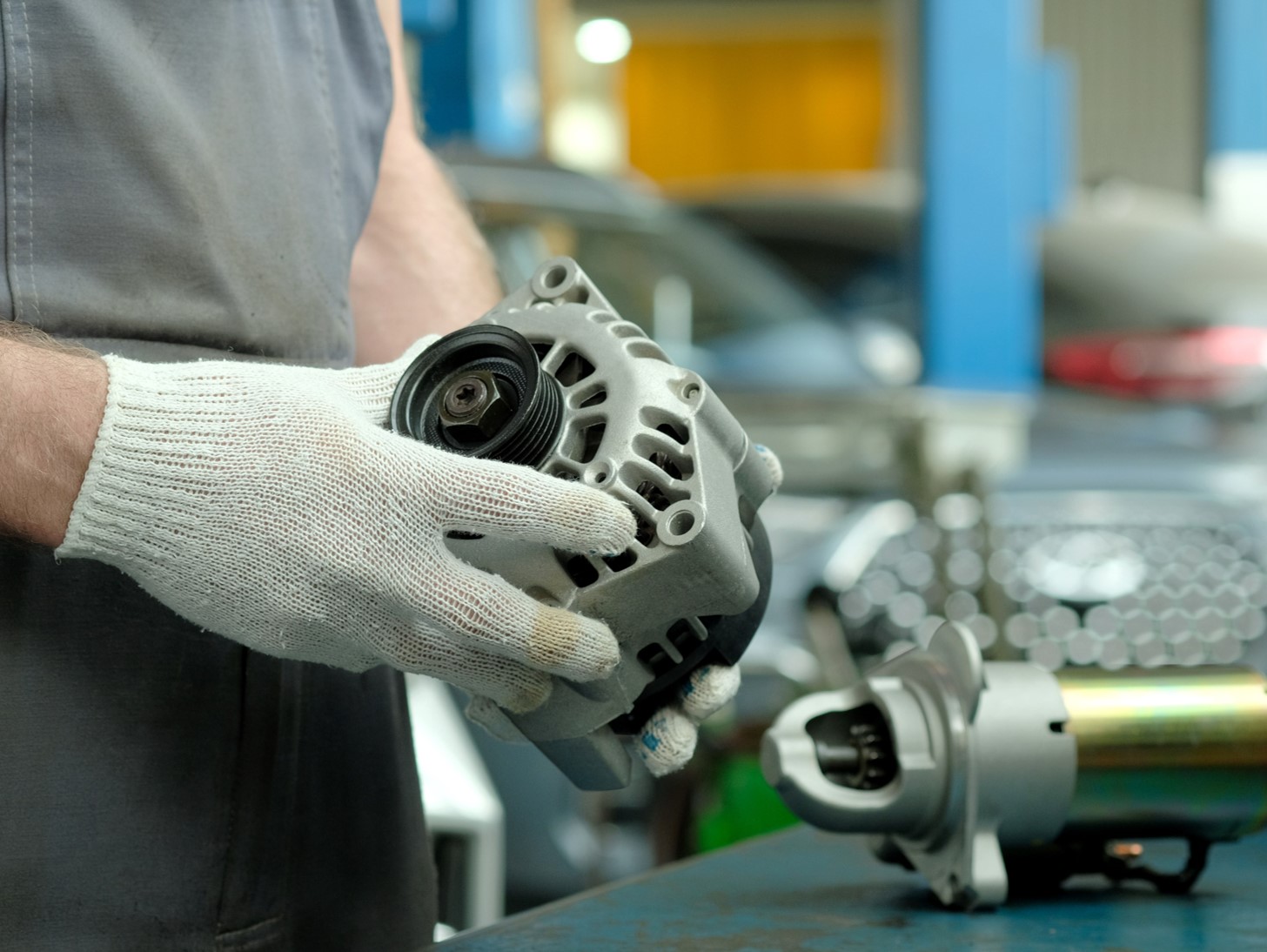

Cars are complex machines with numerous parts working together to ensure smooth and efficient operation. Understanding how these components function can help you maintain your vehicle and make informed decisions about repairs and replacements. In this blog post, we'll explore key car parts, such as diesel injectors, diesel pumps, steering pumps, steering racks, EGR valves, alternators, starter motors, turbochargers, gearboxes, AC compressors, and brake callipers.
Diesel Injectors:
Diesel injectors play a crucial role in a diesel engine's combustion process. They deliver fuel into the engine’s combustion chamber at high pressure. The injector atomises the diesel fuel, creating a fine mist that mixes with the air and ignites, powering the engine. Properly functioning injectors ensure efficient fuel combustion, which leads to better performance and fuel economy.
Diesel Pumps:
Diesel pumps are essential for supplying fuel from the tank to the engine. These pumps create the necessary pressure to move fuel through the injectors and into the combustion chamber. There are two main types of diesel pumps: mechanical and electronic. Mechanical pumps use a camshaft-driven plunger to generate pressure, while electronic pumps rely on solenoids and sensors for precise fuel delivery. Ensuring your diesel pump is in good condition is vital for optimal engine performance.
Steering Pumps:
Steering pumps are part of the power steering system, making it easier for drivers to turn the steering wheel. These pumps pressurise hydraulic fluid, which then assists in steering the vehicle. There are two types of steering pumps: vane pumps and gear pumps. Vane pumps use rotating vanes to generate pressure, while gear pumps use meshing gears. A well-functioning steering pump ensures smooth and effortless steering, enhancing driving comfort and safety.
Steering Racks:
Steering racks convert the rotational motion of the steering wheel into the linear motion needed to turn the wheels. They consist of a rack-and-pinion mechanism, where the pinion is attached to the steering shaft, and the rack connects to the steering linkage. When you turn the steering wheel, the pinion gear rotates, moving the rack and turning the wheels. Regular maintenance of the steering rack is essential for precise and responsive steering.
EGR Valves:
Exhaust Gas Recirculation (EGR) valves reduce nitrogen oxide emissions by recirculating a portion of the engine’s exhaust gas back into the combustion chamber. This process lowers the combustion temperature, resulting in fewer emissions. EGR valves are crucial for meeting environmental standards and maintaining engine efficiency. However, they can become clogged with carbon deposits over time, so regular cleaning or replacement is necessary.
Alternators:
Alternators are responsible for generating electrical power in a vehicle. They convert mechanical energy from the engine into electrical energy, which charges the battery and powers electrical components such as lights, radios, and air conditioning. A failing alternator can lead to a dead battery and electrical system malfunctions, so it is important to monitor its performance and replace it when needed.
Starter Motors:
Starter motors are responsible for starting the engine. When you turn the ignition key, the starter motor engages the engine’s flywheel, causing the engine to turn over and start. Starter motors require a significant amount of electrical power, which is supplied by the battery. If the starter motor fails, the engine won’t start, so ensuring it’s in good working condition is essential.
Turbochargers:
Turbochargers are used to increase an engine's power output by forcing more air into the combustion chamber. They consist of a turbine and a compressor, which are connected by a shaft. Exhaust gases spin the turbine, which drives the compressor to draw in and compress air before it enters the combustion chamber. This process allows the engine to burn more fuel and produce more power. Regular maintenance of the turbocharger is crucial for optimal engine performance.
Gearboxes:
Gearboxes, also known as transmissions, are responsible for transferring power from the engine to the wheels. They allow the vehicle to change gears, adjusting the engine’s speed and torque to match driving conditions. There are two main types of gearboxes: manual and automatic. Manual gearboxes require the driver to manually shift gears, while automatic gearboxes change gears automatically based on driving conditions. Proper maintenance of the gearbox ensures smooth gear changes and optimal performance.
AC Compressors:
Air conditioning (AC) compressors are part of the vehicle's air conditioning system. They compress and circulate refrigerant, cooling the air before it enters the cabin. The engine’s serpentine belt drives the compressor, which requires regular maintenance to ensure efficient cooling. A failing AC compressor can result in a malfunctioning air conditioning system, making it essential to monitor its condition.
Brake Callipers:
Brake callipers are a critical component of the braking system. They house the brake pads and use hydraulic pressure to squeeze them against the brake discs, creating friction that slows down the vehicle. There are two main types of brake callipers: floating and fixed. Floating callipers move in and out with the brake pads, while fixed callipers remain stationary and have pistons on both sides of the brake disc. Regular maintenance of brake callipers is essential for safe and effective braking.
Understanding how different car parts work can help you make informed decisions about maintenance and repairs. We believe it is crucial to regularly service your vehicle, look out for signs of issues or component deterioration, and consider purchasing remanufactured vehicle parts if any part needs replacing. Remanufactured parts offer benefits such as affordability, a reduced environmental impact, and quality that is comparable to new parts. Most remanufactured components come with a guarantee similar to the one you would receive with a new part, providing peace of mind and ensuring your vehicle operates smoothly and efficiently. Regular maintenance and timely replacements can extend the life of your car and contribute to a more sustainable future.